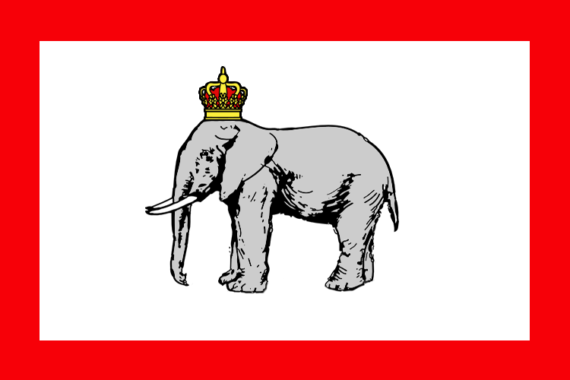An African-American columnist at the Richmond Times-Dispatch has opined that it is time to unlearn the “fake history” of slavery and “The Lost Cause” that ostensibly has been taught in schools in Virginia and the South. I am an advocate for the Truth in all things, and I am not opposed to his premise, although much “fake history” comes from the sins of omission in order to confirm one’s credentials as a victim in today’s progressive identity politics. As by far the majority of our African-American citizens are the descendants of slaves imported into the United States, we might find of interest the testimony of the last known individual in the United States who had been smuggled here in a slave ship just prior to the War Between the States. The noted African-American anthropologist, Zora Neale Hurston, recorded the testimony of Cudjo “Kossola” Lewis, near Mobile, Alabama, in her book Dust Tracks on a Road.
Lewis had been a member of the Takkoi nation. One morning they were attacked by the fearsome Amazon women warriors of Dahomy, who burst through the gates of the compound while the male warriors waited outside to seize those who fled. The old and infirm were beheaded and their heads carried off as trophies. The rest were marched in a slave coffle to the Kingdom of Dahomey and the barracoons on the beach at Dmydah. On the second day of the march, the Dahomians halted to smoke the severed heads, which had begun to rot. Lewis reported that they had to watch the heads of their friends and relatives turning on the long poles in the smoke.
At Dahomey, they saw the King’s palace of skulls before they were put into a barracoon on the beach to await the arrival of a slave ship. There were many captive tribes there, each in a separate barracoon to prevent them from warring with each other. When a trader arrived, he would first decide which tribe interested him, and then – with the men lined up on one side and the women on the other – he would go along picking out the slaves he wished to purchase. Lewis was embarked in the Chlotilde, a fast sailing vessel built by the Maher brothers of Maine, who had moved to Alabama. They were chased by a British man-o’-war on slave patrol, but she outran it. Arriving at Mobile, the vessel and cargo were smuggled into the river, the hundred-odd slaves unloaded, and the vessel scuttled. (Her remains have recently been located, according to news sources.)
The Africans then began their brief career as slaves. All Lewis reported about this career was how surprised he was to see a mule and a plow. After their emancipation, these people made a settlement of their own at Plateau, Alabama, (upriver from Mobile,) and their descendants are there still.
The implications of “fake history” today are that the South has a monopoly on sin, but one might note that the slave smugglers who brought Lewis and his people here were from Maine, one of the New England centers of the African slave-trade. The noted African-American historian and Harvard professor, W. E. B. DuBois, in his work The Suppression of the African Slave Trade to the United States, quotes the January, 1862, issue of the New York Journal of Commerce as stating that New York, Boston, and Portland were the largest African Slave-trading ports in the world at the time.
Moreover, in her work quoted above, Zora Neale Hurston said that in spite of the fact that white people had purchased and exploited her people, the “inescapable fact that stuck in my craw, was: my people had sold me and the white people had bought me.” She said it did away with the folklore (fake history?) she had been brought up on, that white people had gone to Africa, waved a red handkerchief at the Africans to lure them onto the beach and aboard of the slave ship out of curiosity, and then sailed away with them. But no, she said, her own people had “butchered and killed, exterminated whole nations and torn families apart, for a profit” before strangers arrived, and all that Lewis had told her was verified from other historical sources, which impressed upon her the “universal nature of greed and glory.”
How shall we fit that into our endeavor to unlearn fake history?







